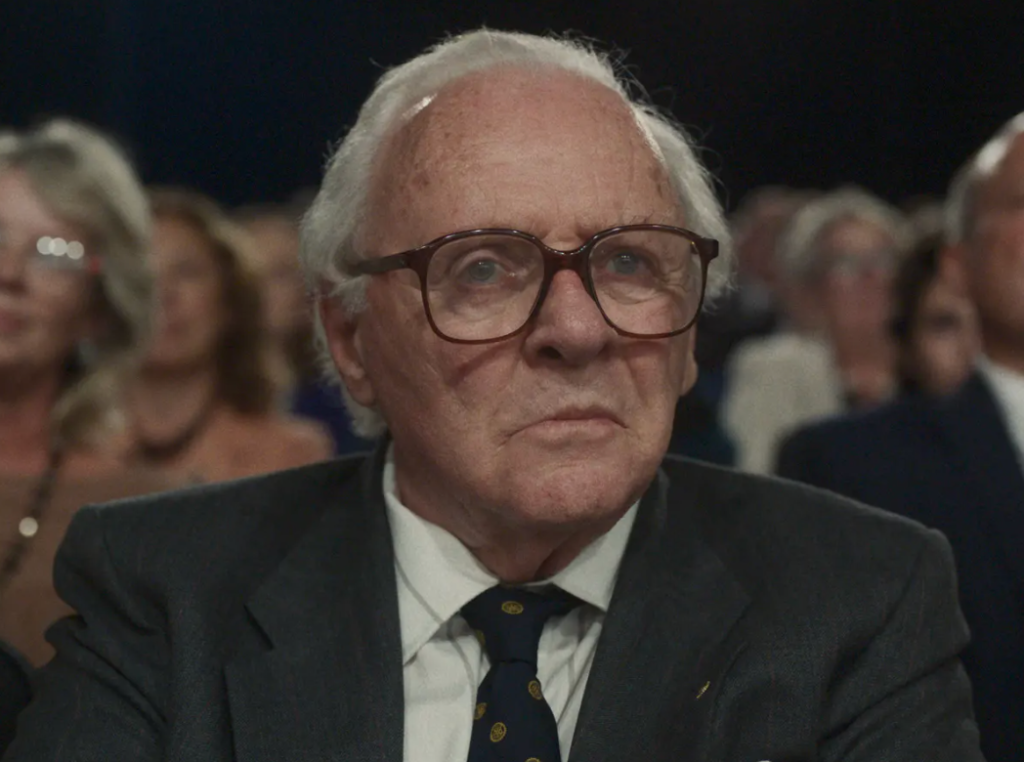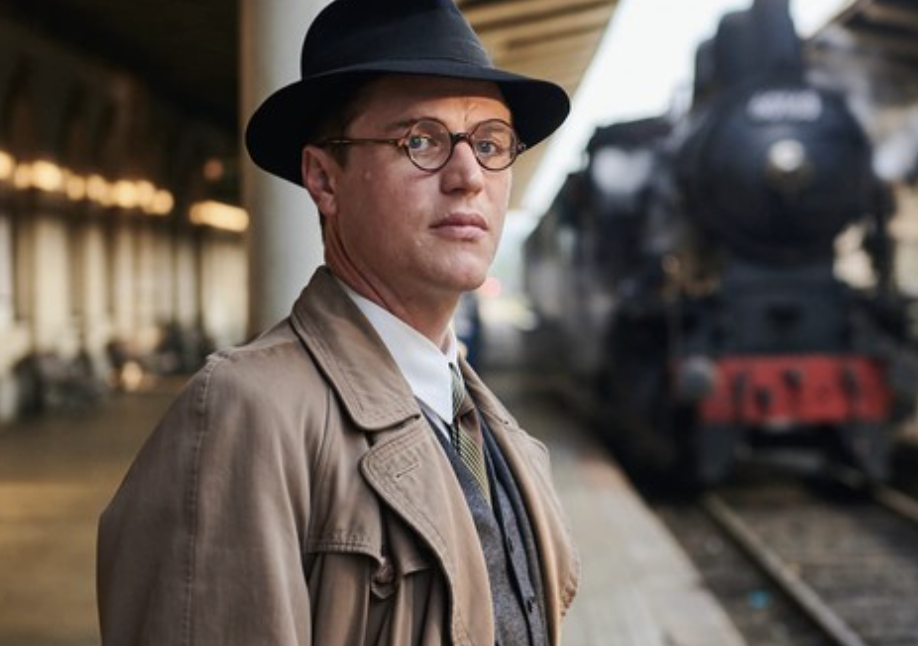
AS THE CREDITS rolled at the end of this superb movie, the audience, instead of rushing out, sat stunned into silence; stunned by the sudden reminder that there was once a time when values such as altruism, moral certitude and generosity of spirit actually existed.
The (true) story begins just at the cusp of Hitler’s invasions of Czechoslovakia (as it then was). Nicholas Winton (Anthony Hopkins) an English City banker, upon learning of the urgent need to evacuate children, whose parents, mainly Jews, are already being rounded up and incarcerated, takes leave from his job and sets about doing something about it. First, he visits Prague, even then under the de facto control of the Nazis, to meet with a small British refugee agency there and to witness for himself the dire state of the children. Amongst the many – dirty, cold, abandoned, hungry – children already orphaned by ‘disappeared’ parents, he meets a young girl of twelve who is looking after an infant. The child is not her sister; just a baby abandoned by parents who are probably dead.
It is a formidable task, worsened by the reality that The British Home Office has not prioritized Czechoslovakia for refugee status. He’s on his own: must secure visas for every child as well as responsible foster parents in Britain as well as £50/child. Along with his no-nonsense mother (Helena Bonham Carter), Winton’s doggedness, persuasiveness, and infectious compassion to do the right thing, motivate not only reluctant civil servants, but an entire nation of ‘ordinary people’.
Why is he doing this? As he tells a skeptical rabbi, he’s not Jewish; he’s not even particularly religious. His actions are not based upon any religious imperative, only a deep humanist one. He ends up shipping out and saving the lives of eight train-loads of kids, almost seven hundred of them. There is a scene near the end when, some-time in the 80’s as a guest of one of those This is Your Life TV shows, the host introduces him to two of the persons his heroism had saved. She then asks whether there is anyone else in the audience whose life had been saved by his acts. The entire audience stands. That scene alone is worth the price of admission.
Director James Hawes (Slow Horses) has given us an incredibly moving film. It is emotional but without a hint of sentimentality or confected emotion (even the musical score is restrained mainly to a single piano knitting the scenes together). The actual plot pulses along and feels more like an action war thriller. There is threat at every turn. And every scene propels the story forward; no time for mawkishness, no time for tears. Lucinda Coxon’s script is eloquent when it needs be, but generally unfussy and to the point.
But the beating heart of the movie: the centre of its gravitas and compelling believability is Anthony Hopkins as the older Winton. As the younger Winton, Johnny Flynn is very much the man of determination and purpose.

As his older version, the determination is still there, but now tempered by age, by guilt at one of the trains that was captured by the Nazis (Was it sheer hubris to keep trying to get kids out even in the face of clear danger?) Winton now is a man burdened by the weight of memories, stored in a tumble of boxes all over his house, bent by the weight of years, but still alive to the possibilities of joy and happiness in the world. It is a stunning portrayal.
One Life makes you realise the extent to how much we have lost. Now that “refugee” has become a term of opprobrium and manufactured fear; and we’re governed by lesser mortals more inspired by populist hate and dumb viciousness, the actions of a person such as Nicholas Winton stand out. And at a time when expediency has replaced ethics and hate has replaced humanism, you mourn the world’s loss of faith in its better self.
And perhaps that’s the moral of the movie.
ONE LIFE. Director James Hawes. With: Anthony Hopkins, Helena Bonham Carter. Johnny Flynn (The Outfit), Romola Garai, Jonathan Pryce. Writer: Lucinda Coxton (The Danish Girl) Composer: Volker Bertlemann (All Quiet on the Western Front). Cinematographer: Zac Nicholson (The Death of Stalin)
